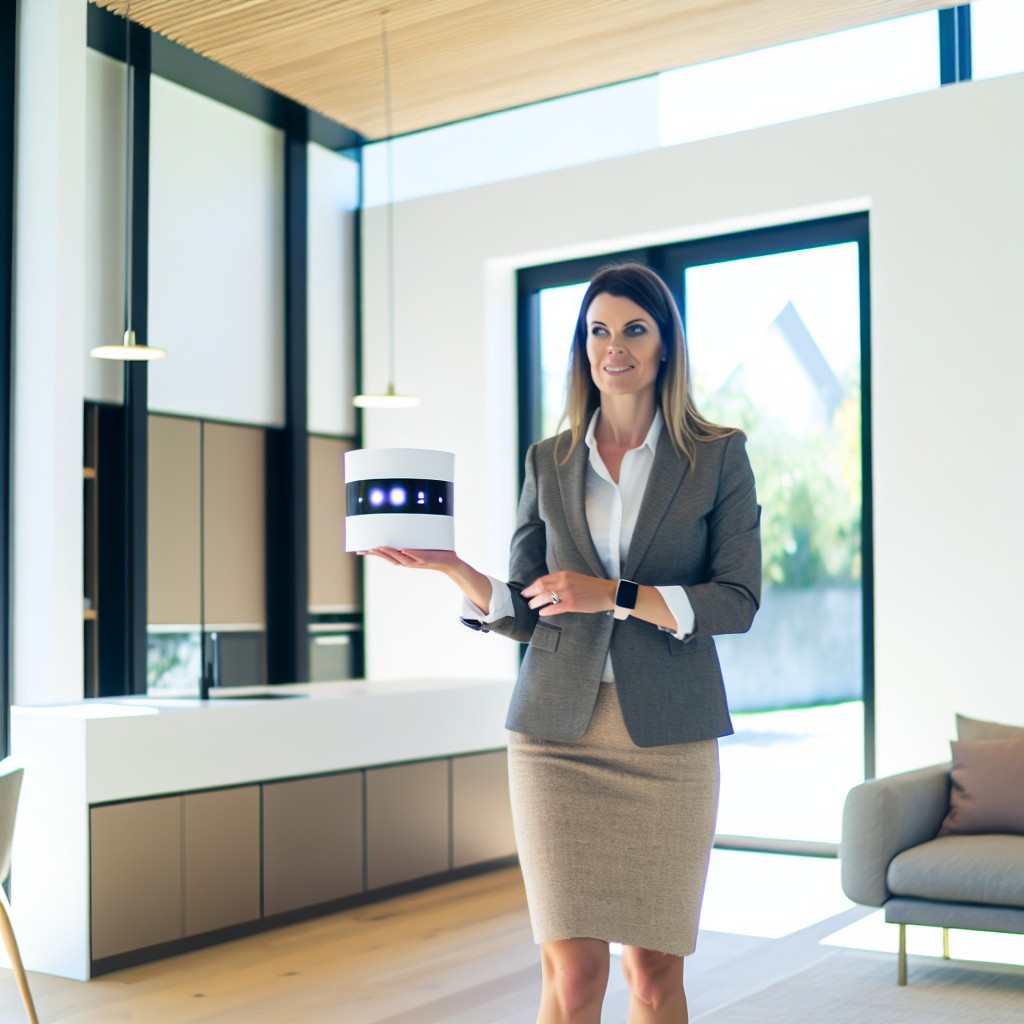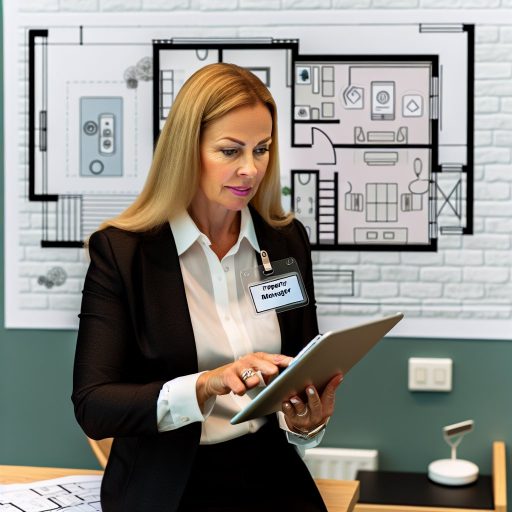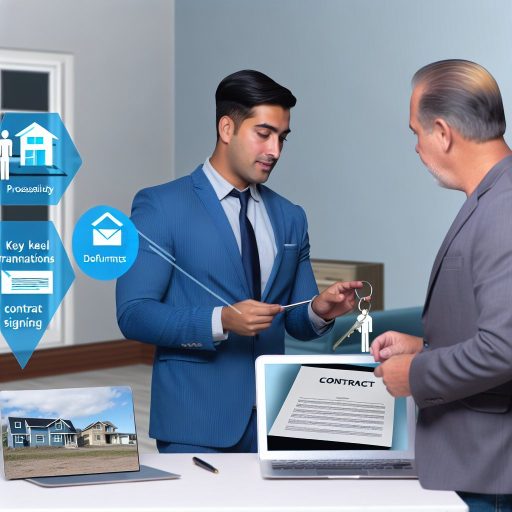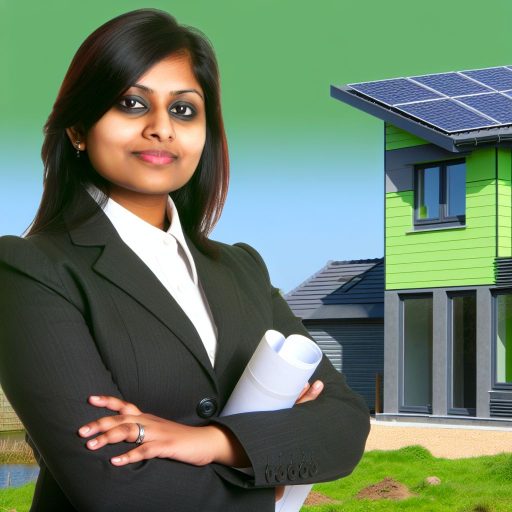Introduction to Smart Home Technology
Smart home technology refers to devices that automate tasks and enhance living experiences.
These technologies include smart appliances, home security systems, and climate controls.
They play a critical role in modern home design, appealing to millennial homebuyers.
Today’s buyers often seek homes that promote convenience and efficiency.
Benefits of Smart Home Technology
Smart home technology offers numerous advantages to homeowners.
First, it increases energy efficiency, which can significantly reduce utility bills.
Additionally, it enhances home security with smart locks and surveillance systems.
Moreover, automation simplifies daily routines and adds comfort to living spaces.
Millennials and Technology Integration
Millennials are tech-savvy and value innovative solutions in their homes.
As digital natives, they embrace technology that simplifies their lives.
This generation expects homes to be integrated with the latest smart devices.
Consequently, homebuilders should prioritize smart features in their designs.
Popular Smart Devices for Homes
- Smart thermostats that learn user preferences.
- Smart lighting systems that can be controlled remotely.
- Voice-activated assistants for enhanced connectivity.
- Smart security cameras for monitoring and safety.
Investing in Smart Technology
Investing in smart home technology is appealing for both buyers and sellers.
It increases property values and can lead to quicker sales.
Additionally, homes equipped with modern technologies are more attractive.
Smart home features provide a unique selling point in competitive markets.
Understanding Millennial Homebuyers: Preferences and Values
Defining Millennial Homebuyers
Millennial homebuyers are those born between 1981 and 1996.
They often prioritize technology and sustainability in their purchasing decisions.
This generation generally values experiences over material possessions.
Consequently, homeownership means more than just acquiring property.
Key Preferences of Millennial Buyers
Millennials tend to prefer open floor plans for better social interaction.
They also seek homes in urban areas close to amenities.
Convenience is critical, so they opt for properties near public transport.
Additionally, they favor homes with modern designs and smart features.
Values That Shape Their Choices
Eco-friendliness is a significant consideration for millennial homebuyers.
Many look for energy-efficient appliances and sustainable materials.
Technology also plays a vital role in their home preferences.
Smart home systems that improve security and energy management are attractive.
Relationship with Technology
Millennials are digital natives who embrace new technology.
They prefer homes equipped with Wi-Fi and smart devices for convenience.
Integration of apps that control lights, thermostats, and security is essential.
Moreover, they appreciate tech that enhances their lifestyle and saves time.
Community and Lifestyle Considerations
Millennials value community and often seek neighborhoods with character.
Proximity to local shops, restaurants, and parks influences their decisions.
They appreciate walkability and access to outdoor spaces.
Furthermore, they prefer homes in safe and vibrant environments.
Key Smart Home Features
Security
Security features significantly appeal to millennial homebuyers.
They prioritize safety for themselves and their families.
Smart locks provide keyless entry and remote access control.
Surveillance cameras enhance home monitoring with live feeds.
Alarm systems alert homeowners and emergency services of intrusions.
Many systems integrate with mobile devices for real-time notifications.
These features create peace of mind for tech-savvy buyers.
Energy Efficiency
Energy efficiency resonates with environmentally conscious millennials.
Smart thermostats learn user preferences and optimize heating and cooling.
Smart lighting systems adjust brightness based on occupancy.
Home automation can significantly reduce energy consumption.
These innovations lower utility costs and environmental impact.
Energy-efficient homes also qualify for various tax incentives.
Consequently, energy efficiency becomes a key selling point.
Convenience
Convenience is a major factor for millennial homebuyers.
Smart home devices streamline daily routines and enhance comfort.
Voice-activated assistants control appliances with simple commands.
Automated schedules manage tasks like watering the garden.
Homeowners can remotely control devices from anywhere.
This level of convenience fosters a modern lifestyle.
Ultimately, it supports the fast-paced lives of today’s buyers.
Delve into the Subject: Smart Home Technology For Real Estate Value Enhancement
The Role of Home Automation: Integrating Devices for a Seamless Experience
Introduction to Home Automation
Home automation has become a key feature for modern living.
It allows homeowners to control various devices remotely.
In particular, millennials are increasingly attracted to these systems.
This technology enhances convenience and efficiency in daily life.
Benefits of Device Integration
Integrating devices provides numerous advantages.
First, it streamlines home management through a single platform.
Users can monitor and adjust settings from anywhere using smartphones.
Additionally, automation helps reduce energy consumption.
This leads to significant cost savings over time.
Key Components of a Smart Home System
A fully automated home includes several devices.
- Smart lighting systems adjust brightness and color.
- Smart thermostats optimize heating and cooling schedules.
- Security cameras monitor property for peace of mind.
- Smart speakers serve as control hubs for all devices.
Popular Brands Leading the Market
Several brands are making waves in home automation.
Google Nest offers smart home solutions with user-friendly interfaces.
Amazon Echo allows voice control for various connected devices.
Apple HomeKit integrates seamlessly with iOS devices for enhanced control.
Challenges in Integration
Despite the advantages, there are challenges in integrating devices.
Compatibility issues can arise between different brands.
Data privacy concerns are also a significant factor for consumers.
Lastly, initial setup costs may deter some homebuyers.
Future Trends in Home Automation
The future of home automation looks promising.
Developers are focused on enhancing interoperability among devices.
Artificial intelligence will further personalize user experiences.
As technology evolves, more innovative solutions will emerge.
Find Out More: Smart Home Technology For Understanding Home Automation Trends
Enhancing Property Value: How Smart Technology Appeals to Millennial Buyers
Understanding Millennial Preferences
Millennials prioritize technology in their home purchasing decisions.
They naturally gravitate towards smart home features that simplify life.
Moreover, smart technology can enhance their overall home experience.
The Impact of Smart Features on Home Value
Homes equipped with smart technology see a boost in property value.
Smart thermostats, security systems, and lighting appeal to buyers.
Additionally, energy-efficient appliances attract environmentally conscious millennials.
Types of Smart Technology that Attract Buyers
- Smart thermostats adjust temperatures for comfort and energy savings.
- Home security systems provide peace of mind with remote monitoring.
- Smart lighting allows users to control ambiance easily.
- Voice-controlled assistants offer convenience in managing daily tasks.
Adding Smart Technology Increases Marketability
Homeowners who invest in smart technologies enhance marketability.
Homes with modern tech stand out in a competitive real estate market.
Technology-driven homes entice younger buyers seeking innovative features.
Smart Technology and Energy Efficiency
Smart technology often leads to significant energy savings.
Potential buyers appreciate the long-term benefits of reduced energy costs.
Consequently, energy-efficient homes contribute to sustainable living practices.
Perceived Lifestyle Benefits
Millennials view smart technology as part of a modern lifestyle.
It aligns with their desire for connectivity and convenience.
Moreover, these features cater to their busy, fast-paced lives.
Learn More: The Role Of PropTech In Enhancing Property Management Efficiency

Developing Smart Homes: Trends in Design and Technology Adoption
Rise of Smart Home Features
Smart home technology continues to gain popularity among millennial homebuyers.
These buyers prioritize convenience and energy efficiency in their living spaces.
Home automation lets users control systems from their smartphones.
Additionally, smart home features enhance security and comfort in everyday life.
Technological Integration
Integrating smart technology is vital for modern home design.
Homeowners prefer systems that work synergistically with other devices.
For instance, smart lights can adjust based on the time of day.
This integration leads to energy savings and improved user experience.
Moreover, voice-activated assistants streamline household management.
Innovative Design Trends
Sleek, minimalist designs attract millennial buyers.
Developers increasingly incorporate smart tech into aesthetic frameworks.
Home layouts often feature open concepts that allow for flexible living.
Smart features blend seamlessly into these designs for cohesive functionality.
Furthermore, eco-friendly materials appeal to environmentally conscious consumers.
Consumer Preferences and Expectations
Millennials often seek sustainable and energy-efficient homes.
Smart thermostats and energy monitoring systems are in high demand.
Moreover, customizable experiences attract buyers looking for personal touches.
To meet these expectations, builders must understand consumer needs better.
Regular feedback helps developers refine offerings and enhance satisfaction.
Challenges to Adoption
Despite the growing interest, challenges remain in tech adoption.
Costs associated with smart home upgrades can deter potential buyers.
Additionally, concerns about privacy and security may hinder acceptance.
Educating consumers about safety features and cost savings is essential.
By addressing these issues, the market can foster greater innovation.
The Future of Smart Homes
Looking ahead, smart home technology will continue to evolve.
Integrating artificial intelligence into home automation will enhance capabilities.
This advancement will allow for predictive analytics and improved energy use.
As the market matures, we can expect more affordable solutions.
Consequently, smart homes will become increasingly accessible to millennials.
See Related Content: Why PropTech Is The Future Of Commercial Real Estate Development
Marketing Strategies: Effectively Communicating Smart Features to Millennials
Understanding Millennial Preferences
Millennials prioritize technology in their home buying decisions.
They seek homes that enhance convenience and sustainability.
Smart home technology significantly influences their purchasing choices.
Highlighting Key Smart Features
Focus on showcasing energy efficiency capabilities.
Smart thermostats can lower utility bills effectively.
Additionally, automated lighting systems provide energy savings.
Home automation enhances security through remote monitoring.
Utilizing Digital Marketing Channels
Leverage social media platforms for targeted advertising.
Visual content showcasing smart features captures attention.
Engage potential buyers through interactive virtual tours.
Use influencer partnerships to reach a wider audience.
Creating Compelling Marketing Content
Develop engaging blog posts highlighting smart technology benefits.
Include testimonials from satisfied millennial homeowners.
Offer detailed guides on using smart devices effectively.
Building Community and Connections
Host local events to demonstrate smart home technology.
Encourage discussions about technology in real estate.
Create online groups to foster community engagement.
Offering Demonstrations and Experiences
Provide opportunities for potential buyers to experience smart technology.
Organize open houses featuring live demonstrations.
Encourage interactions with various smart home devices.
Future Outlook: The Evolution of Smart Home Technology in Real Estate
Current Trends Shaping Smart Home Technology
Smart home technology is continuously evolving to meet consumer demands.
Today’s homebuyers prioritize convenience and connectivity in their living spaces.
Innovations such as voice-activated controls are becoming standard features.
Moreover, energy efficiency is a significant selling point for modern homes.
Homeowners seek automation that facilitates remote monitoring and control.
Consumer Preferences Among Millennial Homebuyers
Millennials are driving the demand for smart home technologies.
This generation values sustainability and energy-efficient solutions.
Additionally, they appreciate seamless integration with mobile devices.
Intuitive controls enhance user experience, making homes more appealing.
Other features, like security systems and smart appliances, attract this demographic.
Future Innovations on the Horizon
Advancements in artificial intelligence will soon redefine smart homes.
AI can enhance automation, learning preferences over time.
Furthermore, smart technology will increasingly focus on health and wellness.
Homes could integrate air quality monitors and advanced water filtration systems.
As technology evolves, cost-effective solutions will likely emerge.
The Economic Impact on Real Estate
Smart home technology will influence property values in the coming years.
Homes equipped with these features tend to sell faster and at higher prices.
Real estate agents must understand these trends to attract buyers.
Localization of technology options will appeal to various markets.
Ultimately, adapting to these advancements is crucial for real estate success.
Additional Resources
Smart Home Technology Is Raising Property Values | Ivo van …




